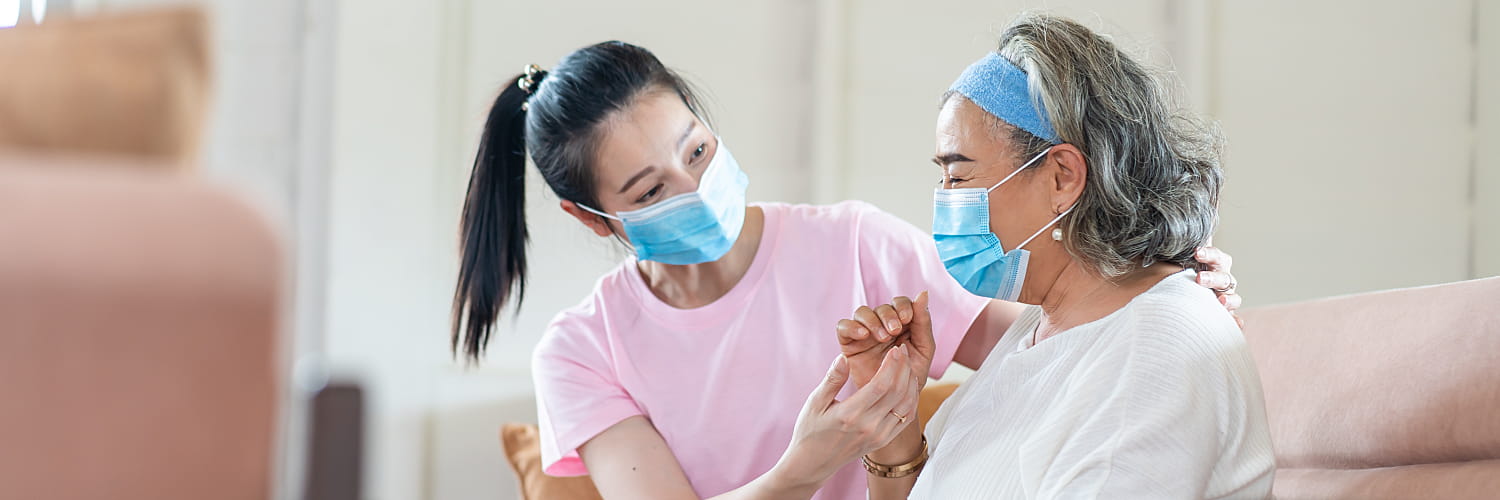Before the COVID-19 pandemic, many baby boomers were already willing to make sacrifices to provide care for a loved one. Now, the coronavirus has created additional concerns around caregiving, especially as cases of COVID-19 have spread through nursing homes and senior care facilities.
An in-home caregiver might seem like a better option, but how can you mitigate the risk of the virus spreading to your loved one's household or to others? Is it better for a family member to assume the role of caregiver or to hire an outside aide?
There is no one-size-fits-all solution for caregiving during COVID-19. The decision is deeply personal and comes down to what works best for you and your family. Here are a few considerations to keep in mind as you weigh your in-home caregiver options.
Take Stock of the Risks
Any time you or a loved one interacts with someone from outside your household, the risk of COVID-19 transmission increases. The New York Times reports that many home care workers care for several patients a week or work multiple jobs where social distancing is difficult, if not impossible. This can increase the risk of spreading the virus to patients.
Whether you work with an agency or decide to hire an independent caregiver, thoroughly vet each candidate for the job. Make sure you are aware of the most important qualifications for in-home caregivers; the Family Caregiver Alliance provides a list of questions to ask about worker licensing and insurance, among other topics.
To make outside assistance safer, you will also want to ask about the caregiver or agency's COVID-19 protocols. For example, will the worker provide their own personal protective equipment (PPE), or should you make PPE available in the home? If you are not comfortable with a candidate's protocols, move on to the next candidate or consider whether someone in your family might be up to the task of caregiving.
Be Realistic About Your Caregiving Capacity
Caring for a loved one can be both physically and emotionally demanding. For many people, being a caregiver on top of other responsibilities simply isn't feasible, and adding stress to the relationship between the caregiver and their loved one could be detrimental to both parties. For others, making adjustments to care for a family member can be a rewarding and mutually beneficial experience.
Make sure you understand everything that caring for your loved one would entail before you commit to the role of caregiver. Consider following guidance from the American Red Cross on caregiving during the pandemic, which includes information on developing a support team and adhering to additional safety guidelines.
Understand the Limits of Telehealth
Virtual assistance may be an option in some cases, as certain visits and services can be provided via telehealth. This is an attractive option during the pandemic, when in-person interactions can be risky. However, check to see what your insurance will cover before you move forward with e-visits for in-home care. Medicare may cover some, but not all, services.
Making choices about caregiving can be challenging, especially if your loved one is resistant to accepting help from someone outside the family. Remember that any decisions should factor in both your loved one's preferences and your needs. With that in mind, take the time to research your options for in-home caregivers thoroughly, and vet all candidates and agencies to ensure that they are a good fit for your situation.


 Lauren Sieben
Lauren Sieben










